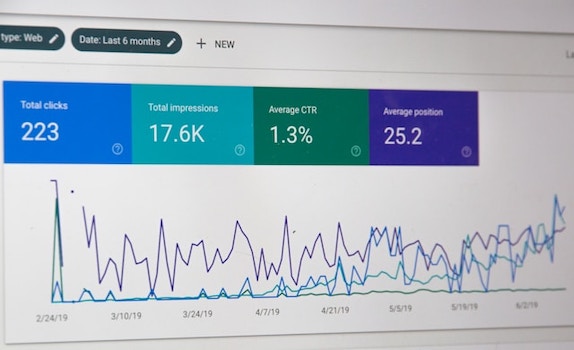
You’ve launched your dream business and built a website. You’ve spent hours perfecting it: crafting blog posts, fine-tuning your messaging, and sharing content on social media. Then you type your website into the search bar… and nothing. You’re buried on page five—or worse, nowhere to be found.
It’s not that your content isn’t good. It’s that people—and search engines—can’t find you.
That’s where Search Engine Optimization (SEO) comes in. SEO is the practice of optimizing your online presence so your website shows up when people search for the information, products, or services you offer. It’s not just a buzzword; it’s a crucial part of being seen online.
Let’s break down what SEO is and why it matters to you.
SEO Basics: Understanding Your Visibility on Search Engines

Think of SEO as a way to help search engines understand who you are and what you offer so they can show your website to people actively looking for what you provide.
Did you know that 68% of online experiences begin with a search engine? Even more impressive: SEO drives over 1,000% more traffic than organic social media.
If you want to be seen, SEO is how you show up. Let’s break it down.
Keywords: The Core of the Search Strategy
Let’s say someone searches for “best hiking boots,” and that’s exactly what you sell. But if your website never mentions that phrase, you’re likely missing out on valuable traffic. Keywords are the words and phrases people type (or say) into search engines. In fact, by 2025, over 70% of people are using voice search instead of typing.
Effective SEO starts with identifying and using the right keywords. Keyword research tools can help you discover what your target audience is searching for. But it’s not about stuffing your site with keywords. The key is to use them naturally—in titles, headings, and throughout your content—to help both users and search engines understand what your site is about.
High-Quality Content: Creating Valuable and Relevant Information
Search engines love useful, original content, especially content that answers questions. That’s why quality is the backbone of SEO. When you create blog posts, product pages, or helpful resources, you’re not just informing your audience—you’re also building trust and improving your search rankings.
Businesses with blogs generate 55% more traffic than those without. So, if your website doesn’t have one yet, it’s time to start.
When creating content, aim to make it:
- Helpful and informative
- Easy to read and well-organized
- Updated regularly to stay relevant
Great content isn’t just good for SEO. It keeps your visitors coming back.
Making Your Website Search Engine Friendly
SEO isn’t just about content. It’s also about how your website is built. To rank well, your site needs to be easy for search engines to crawl, understand, and index.
Technical Aspects (site speed, mobile optimization)
Two of the most important technical factors are site speed and mobile responsiveness. Google favors websites that load quickly and perform well on mobile devices. In fact, with mobile-first indexing, Google primarily uses the mobile version of your site to determine rankings.
To make your site technically SEO-friendly, ensure that it:
- Loads quickly (tools like Cloudflare offer great tips)
- Works seamlessly across all devices
- Uses secure HTTPS encryption
On-Page Elements (titles, descriptions, headings)
On-page SEO is equally crucial. Search engines pay close attention to key elements like your page titles, meta descriptions, and headings. These not only help search engines understand your content but also improve click-through rates in search results.
Each page should include:
- A clear, keyword-rich title tag
- A compelling meta description
- Properly structured header tags (H1, H2, H3, etc.)
Together, these elements help boost visibility and user engagement.
Why Should I Care About SEO? The Benefits Explained
Now that you understand what SEO is, you might be wondering: Why does it matter?
The answer is simple: SEO can have a measurable, positive impact on your website and your business. When done right, it increases visibility, drives targeted traffic, and helps convert visitors into customers.
Connecting You to Your Target Audience
One of the biggest advantages of SEO is its ability to connect you with people who are actively searching for what you offer. Instead of casting a wide—and often costly—advertising net, SEO attracts visitors with real search intent.
These users are entering questions, keywords, and concerns into search engines. If your site is properly optimized, they’re more likely to land on your page right when they need you most.
Giving You a Competitive Advantage
Online competition is fierce in nearly every industry, but good SEO can help you stand out. When your website ranks higher than your competitors on Google, you gain more visibility, credibility, and clicks.
Tools like Google Search Console even let you track how your site performs compared to competitors, so you can fine-tune your strategy in real time.
SEO may be a long game, but it delivers lasting results—and a powerful competitive edge.
Building a Solid Online Presence
SEO is a powerful tool for building trust and brand recognition. When your website consistently appears in search results, people begin to recognize your brand and see you as an authority in your niche or industry.
Publishing consistent content, optimizing for keywords, and building quality backlinks all contribute to your domain authority—a key signal to search engines that your site is credible and reliable.
In short, SEO helps you establish and maintain a strong, lasting online presence.
Measuring Your Success
One of the biggest advantages of SEO is that it’s measurable. With tools like Google Analytics and Google Search Console, you can see which pages generate traffic, which keywords perform well, and how users interact with your content.
Because SEO is data-driven, you’re never left guessing. You can adjust your strategy based on what’s working and double down on high-performing pages to maximize your results.
Common SEO Misconceptions and Best Practices
SEO is often misunderstood. In fact, some even treat it like a magic trick. Let’s clear things up by busting a few common myths and highlighting what actually works.
SEO Myths Debunked
Here are some common SEO myths and the truths that set the record straight:
Myth: Stuffing keywords into a page guarantees high rankings.
Truth: Keyword stuffing can actually hurt your SEO. Google prioritizes helpful, people-first content over keyword tricks and manipulative tactics.
Myth: Buying backlinks will boost rankings quickly.
Truth: Google penalizes websites that engage in manipulative link schemes. The best approach is to earn backlinks organically by creating valuable, shareable content.
Myth: SEO is just about ranking on Google.
Truth: SEO goes far beyond visibility. It also impacts user experience, credibility, and conversion rates. A top ranking means nothing if users bounce off your site right away.
Emphasizing Ethical and Sustainable SEO Strategies
SEO should be ethical, sustainable, and user-focused. If you want to achieve long-term success with major search engines, stick to strategies that prioritize value and transparency.
Here’s how to do it:
- Create high-quality, relevant content that answers real questions your potential customers are asking.
- Use a clear page structure with headers, metadata, and internal links to help both users and search engines navigate your site.
- Optimize for mobile devices and fast loading speeds. Both are critical for rankings and a smooth user experience.
- Build backlinks naturally by creating valuable content others want to reference or share, like blog posts or infographics.
- Stay informed about algorithm updates and follow best practices from reputable sources.
If you focus on helping users, being transparent, and continuously improving your site, SEO will work for you and continue delivering results over time.
Final Thoughts: SEO Isn’t Just for "Tech People." It’s for You!
You don’t need to be a developer or a marketing guru to understand SEO. You just need to care about being found online. By using keywords wisely, creating relevant content, and paying attention to the technical health of your website, you can attract potential customers, build loyalty, and stay competitive.
SEO is one of the smartest investments you can make to get ahead in your industry. So the next time you wonder why your amazing content isn’t being seen, remember: it’s not just what you create—it’s how people find it.
Grow your SEO strategy with Genius Platforms and start being visible today.

Comments